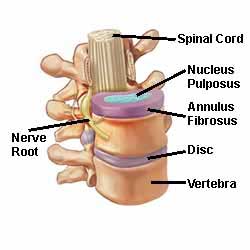Music Therapy
Table of Contents
What is Music Therapy?
Music therapy uses music and/or music-related features such as sound, rhythm, and harmony to achieve goals like anxiety reduction and enhanced quality of life. A music therapist consults with the patient to learn more about your requirements, musical preferences, and experiences before adapting each session to you. They will also assess your progress regularly and may collaborate with other healthcare experts to manage your care.
Your specific requirements and goals determine the number of sessions, the duration of each session, and what you accomplish. Music therapy may involve singing a song, playing instruments, or producing music. Particular discussions can involve hearing music and discussing its significance.
Music is used as therapy by healthcare workers in a variety of settings, including at patients’ bedsides in hospitals. However, music therapy is different than just listening to music to relax. Music may be a wonderful aid for relaxation and healing therapy.
However, according to the definition of clinical musical therapy, the session must be planned and led by a certified music therapist within a therapeutic relationship to be classified as such.
Music therapy improves individuals of all ages and backgrounds. It may enhance several aspects of your well-being, including:
- Psychological,
- Emotional,
- Physical,
- Social
- cognitive
What conditions can music therapy manage?
Music therapists utilize this type of therapy to address various illnesses. This indicates it’s part of a bigger therapy strategy that might involve drugs or other therapies. According to studies, music therapy can benefit persons suffering from:
- Dementia.
- Traumatic brain injury.
- Stroke.
- Parkinson’s disease.
- Cancer.
- Autism Spectrum Disorder.
- Mood disorders.
- Anxiety disorders.
- Learning difficulties.
- Developmental disabilities.
- Pain (acute or chronic).
- Substance abuse disorders.
Types of music therapy
Everyone’s needs differ since each individual is unique. As a result, music therapy is divided into many varieties that may be adjusted to each individual’s specific needs. Here are some forms of music therapy to consider:
- Active music therapy: The patient actively engages in the process. The patient may sing songs or perform music using their favorite musical instruments. This will allow you to express your emotions without being judged.
2. Receptive Music Therapy: At this point, the emphasis is on just listening. Your therapist will most likely select certain sounds and tunes for the patient. These few songs will assist you in bringing particular emotions and sentiments to the forefront, encouraging you to work on them at your own speed.
3. Neurologic Music Therapy (NMT): This type is designed particularly for patients with neurological disorders, and it uses rhythm and music to improve cognitive-related function.
4. Analytical Music Therapy: Analytical music therapy uses music to assist individuals in recognizing their emotions. Music is used to reach emotions that may be hidden deep within.
What are the potential benefits of music therapy?
The advantages you obtain are determined by the ailment or symptoms the patient is treating, as well as your music therapy goals. Your music therapist can tell you more about what to expect in your specific scenario. In general, confirmation indicates that music therapy may
- Help you relax.
- Help you explore your feelings.
- Reduce anxiety and sadness.
- Reduce your stress levels.
- Control your mood.
- Improve your communication abilities.
- Improve your speaking and language abilities.
- Develop social skills.
- Build your self-confidence.
- Help you develop good coping mechanisms.
- Improve your problem-solving skills.
- Reduce the perceived degree of discomfort.
- Improve your physical coordination, motor skills, and mobility.
- Enhance your quality of life.
What are the risks of music therapy?
Music therapy is both safe and low-risk. However, music has the potential to bring up sad or unexpected memories for you.
To reduce the likelihood of this occurring, the patient’s music therapist will ask about your life experiences. These include any prior trauma or other factors that may affect your reaction to music. If you feel comfortable sharing this information, your therapist will be able to personalize the session to your specific requirements. Your therapist will do all necessary to ensure that you have a comfortable, safe, and meaningful session.
Where is music therapy practiced?
Music therapy is used in a variety of situations, including:
- Hospitals Schools
- Residential aged care homes.
- Palliative Care Facilities
- Disability care facilities
- Community Health Programs
- Child care centers
- Prisons and detention centers.
- Private practice.
How does music therapy work?
The way music affects the brain is quite complicated. Different parts of the brain process all its components, such as pitch, speed, and melody.
For example, the cerebellum regulates rhythm, the frontal lobes assess emotional responses caused by music, and a little portion of the right temporal lobe assists with pitch comprehension.
When exposed to intense music, the brain’s reward region, known as the nucleus accumbens, can even create significant physical indicators of pleasure, such as goosebumps.
Music therapy can leverage the body’s deep physical reactions to music to treat patients with mental health issues.
How does it assist with anxiety?
Many studies have shown that music therapy helps lower anxiety in persons with cancer, those having surgery, and those entering critical care units. Some studies also demonstrate that music lowers blood pressure and pulse rate, which can have a direct impact on how stressed a person feels.
There is also evidence that people who get music therapy have less anxiety shortly after the session, meaning that music therapy may be a practical strategy to relieve symptoms fast.
Music impacts the quantity of stress hormones released by the body, such as adrenaline and cortisol, and lowering these chemicals can help reduce anxiety symptoms.
How It Helps With Depression
According to studies, music therapy can help with depression symptoms, with individuals who received music therapy in addition to normal therapies for depression, such as talking therapy, doing better than those who just had standard therapy.
Listening to music can also cause the production of dopamine, a hormone that makes people feel good, as well as endorphins, which generate joyful moods and reduce pain.
Music therapy is not a treatment for depression, although it can bring some short-term benefits. Music therapy elevates mood while also promoting connection and self-expression.
Music therapy has many advantages for children, including:
providing enjoyable methods of expressing thoughts and feelings.
Improve your social interaction and communication skills, promote creative play, and attention and coordination.
Increasing self-consciousness and social awareness, especially during group music sessions.
Developing self-esteem and resilience.
Developing language and listening skills
Strengthening familial bonds
FAQ
What are the 5 things in music?
While there are different methods to characterize musical aspects, they may be generally categorized into five categories: melody, texture, rhythm, form, and harmony. Among these five, melody and rhythm are frequently regarded as the most essential aspects of music.
Is music important in life?
Listening to or playing music is an excellent way to keep your brain busy as you age. It delivers a complete cognitive exercise. According to research, listening to music can help lower anxiety, blood pressure, and discomfort while also improving sleep quality, mood, mental alertness, and memory.
What are the 7 functions of music?
Music influences bodily responses.
Music is a kind of communication.
Music is a method of emotional expression.
Music: Symbolic Representation.
Music serves to impose social standards.
Music helps to validate social structures and religious ceremonies.
Music helps to ensure the continuity and stability of civilization.
What are the 5 purposes of music?
Five reasons why everyone should include music in their lives.
Music unites people…
Music helps your overall health and well-being.
Music can boost confidence and resilience.
Music allows for creativity and enjoyment.
References
- Professional, C. C. M. (2025b, May 15). Music therapy. Cleveland Clinic. https://my.clevelandclinic.org/health/treatments/8817-music-therapy
- Zoppi, L. (2020b, November 4). What is music therapy, and how does it work? https://www.medicalnewstoday.com/articles/music-therapy
- Asset Media. (n.d.). What is Music Therapy? https://www.austmta.org.au/about-us/what-is-mt/








One Comment